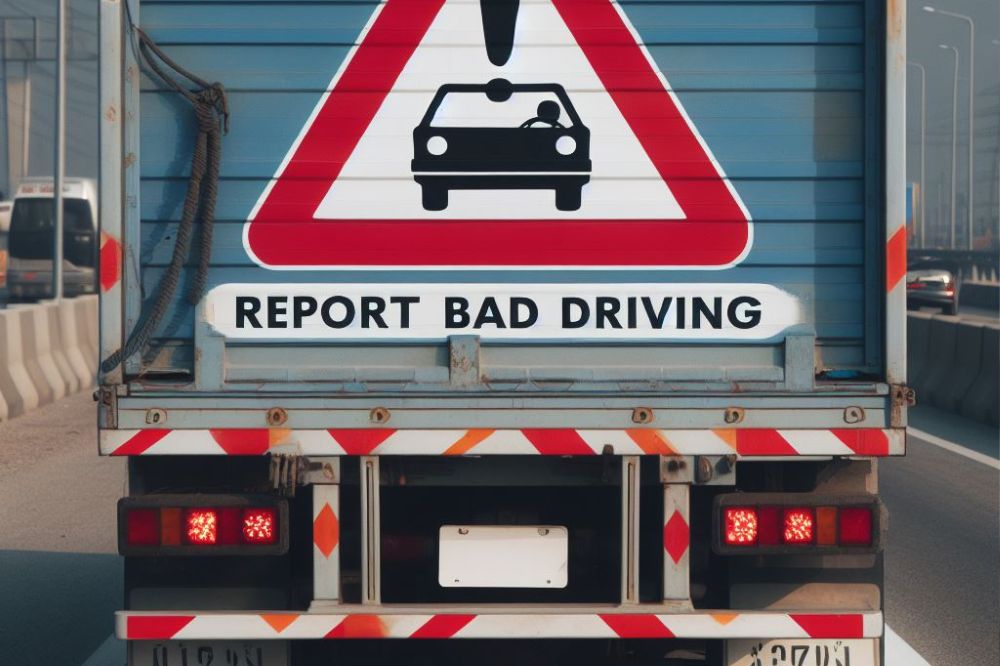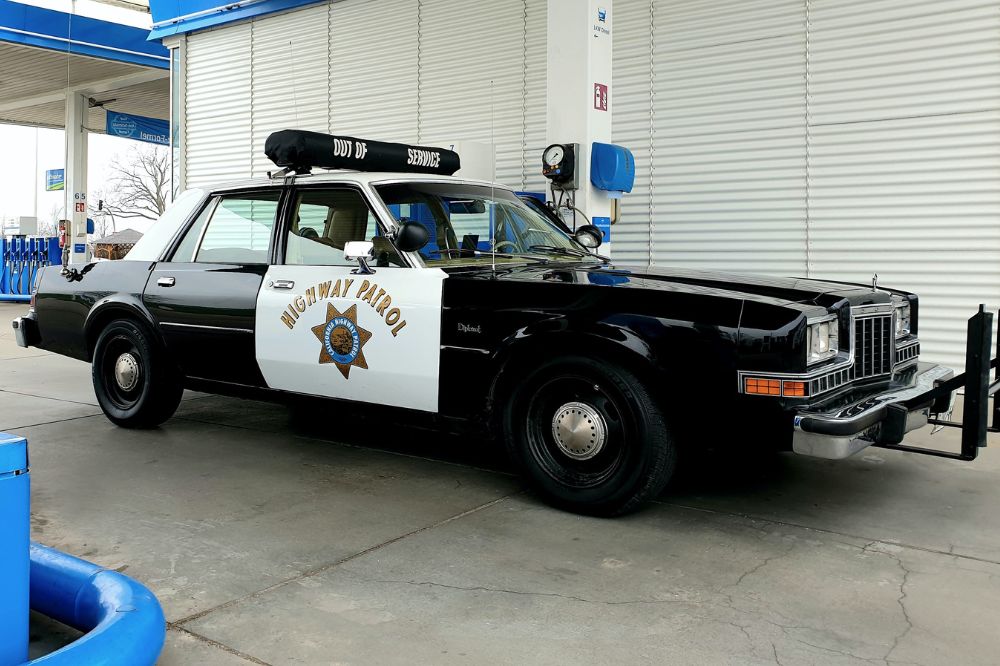
Have you ever witnessed truck drivers driving unsafely and wondered if there was anything you could do to stop them? Well, you can report their unsafe driving to relevant authorities so they can address the issue before it’s too late.
Unsafe truck drivers put all road users at risk of severe injuries or death from fatal accidents. The Federal Motor Carrier Safety Administration (FMCSA) and other state bodies provide several avenues to report such dangerous truck drivers and minimize these risks.
Learn how to report a semi-truck driver effectively below and help promote road safety.
Why You Should Report Unsafe Driving
Truck accidents have become increasingly common across the U.S. as their numbers continue to increase annually. In 2021, for instance, there were over half a million (523,796) truck accidents, up from 415,444 incidents the previous year.
FMCSA, in one of their truck crash causation studies, cites driver-related errors as the top cause of most truck accidents.
By reporting unsafe truck drivers, you alert the relevant authorities to conduct an investigation and address the issue before the dangerous truck driver causes an accident and injures people. Reporting unsafe truck drivers ensures our roads stay safe for everyone.

Unsafe Truck Driving Practices
A reckless driver violates road regulations willfully, disregarding their safety and the safety of other drivers. Such erratic behavior almost always leads to fatal accidents that cause catastrophic injuries. Some dangerous truck driving behaviors you should take note of and report include the following:
Illegal Passing
Large trucks limit on-road visibility for other drivers due to their large size. Because of this, transportation rules in most states prohibit professional drivers from passing on a curve, hill, and on the right.
Illegal passing happens when semi-truck drivers violate these regulations, limiting visibility for other drivers who require clear sight lines to avoid accidents. This unsafe driving behavior often leads to a semi-truck running other vehicles off the road.
Speeding
Some truck drivers drive too fast when trying to meet their demanding pick-up and drop-off schedules. Statistics from the Federal Highway Administration (FHA) reveal that speeding truckers often cause serious accidents that lead to fatalities because of increased forceful impact during a collision.
Failing to Yield
Most trucks don’t have the right of way. If you observe a semi-truck driver failing to yield to other drivers, report them as they’re likely to cause dangerous head-on and T-bone collisions.
Swerving
In most cases, swerving is a sign of an underlying problem that might affect the driver’s ability to control their vehicle, leading to a truck crash. The driver might be distracted, under the influence, or experiencing a medical emergency. It’s best to report such cases as emergencies (more on how to do this below).

Following Too Closely
Trucks require long distances and time to stop. Semi-truck drivers who follow other vehicles too closely can cause rear-end collisions, especially during heavy traffic and bad weather.
Camping in the Left Lane
Most states ban slow vehicles from using left lanes as their default driving lane on interstate or multi-lane highways. The left lanes are mostly for passing. Camping in the left lane, therefore, is a safety violation.
It’s an unsafe driving practice that forces vehicles to pass large trucks on the right side, where there are massive blind spots. This increases the chances of accidents occurring.
Where to Make a Report
If a truck driver’s unsafe behavior behind the wheel puts other road users in immediate danger, call 911 and report an emergency. Life-threatening driving behavior, such as swerving, counts as an emergency. The police will intercept the truck before an accident occurs.
For non-emergency cases, there are a few options for reporting an unsafe driver’s conduct, depending on your location and circumstances. Some of these include:
File a Complaint With the FMCSA
Reporting safety violations to the FMCSA is a highly effective method for maintaining road safety. The FMCSA investigates each complaint, penalizes the involved parties, and records them in the national consumer complaint database.
These complaints become a permanent part of a trucking company’s driving record, prompting companies to take necessary measures to ensure safe driving and avoid reputational damage or severe penalties.
Contact FMCSA by calling 1-888-DOT-SAFT (1-888-368-7238) or fill out their consumer safety violation complaint form if you’ve witnessed unsafe driving behaviors on an interstate highway.

Contact the Highway Patrol
To report unsafe truck drivers on intrastate roads, file a complaint with the state’s Department of Transportation, highway patrol office, or the Public Utilities Commission. These agencies oversee the safety of roads within each state and can respond quickly to prevent truck crashes.
Provide relevant information to support your complaint, including any distinguishing characteristics of the unsafe driver and vehicle, as explained below.
Report Them to Their Employer
Most trucking companies provide a phone number you can call to report any commercial vehicle driver operating their trucks unsafely. You’ll almost always find this number on the conspicuous ‘How’s my driving’ sticker at the back of many commercial trucks.
You can also email the safety director of a trucking company explaining the unsafe driving practice along with other relevant details. A responsible trucking company will appreciate your report and evaluate the truck driver to see whether they’re fit to remain behind the wheel.
What Information To Report
Your report about an unsafe driver should include specific information relevant authorities can use to conduct an investigation, such as:
- The location where you witnessed the road safety violations. Specify whether the road is intra- or inter-state, its name or number, plus any cross streets, mile markers, road signs, intersections, and exits relevant authorities can use to pinpoint the location.
- A detailed description of the truck and the driver – providing any stand-out characteristics, like vehicle make and color, helps a lot
- Identifying information about the trucking company, such as the company name and logo
- License plate number plus the Department of Transportation (DOT) number
- The time and date of your observation
- An explanation of the unsafe behavior

How Do You Report a Trucking Company Anonymously?
Reporting a trucking company that encourages unsafe driving among its employees is similar to reporting an individual truck driver. You use the same channels and follow the same procedures we’ve discussed.
The only difference is – you’ll have to specify why you think the trucking company allows or supports unsafe driving practices as opposed to it being an individual trucker’s poor driving habit. Have you seen most of the company’s trucks speeding past your home repeatedly despite being driven by different drivers?
Some people fear harassment or retaliation by the trucking company and might not want to go to court or actively participate in any investigations. In this case, you can make an anonymous complaint, although it might be harder to investigate.
You have every right to withhold your name and other personal details when calling in a complaint. You can also omit your personal info when filling out a complaint form and use the ‘anonymous’ tag where your name is mandatory.
Avoid providing false identification info, as this counts as a crime. Sending a letter providing the necessary details only to the relevant authority also helps to hide your identity.
Final Thoughts
When you notice an unsafe truck driver, keep yourself safe first. Drive away from the dangerous driver, and avoid tailgating, speeding up, or engaging in unsafe driving behaviors while trying to collect information to make your complaint.
You can also report unsafe driving by a trucker to a truck accident lawyer, if you or your loved ones get injured in a truck accident. The right truck accident lawyer will help you get maximum compensation for medical bills, lost wages, and all other damages sustained.
We’ve prepared several guides to help you understand how to handle a truck accident and find the most competent truck accident lawyers afterward. Check out our blog to learn more about this.


